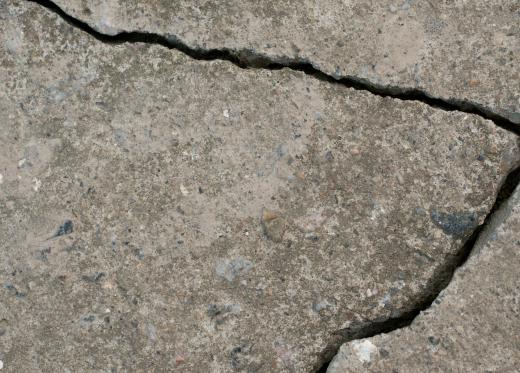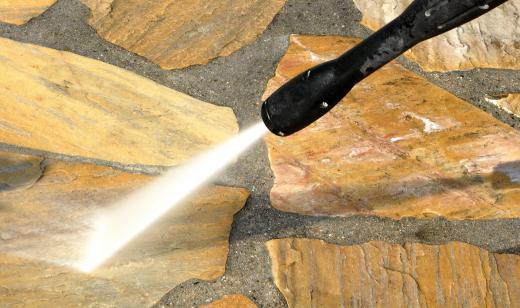A concrete sealant is a product that prevents water and other liquids from seeping into, or being absorbed by concrete products. This is important to prevent contaminants and cracks within the concrete. Depending on the concrete sealant, it can be made with either petroleum products or acrylics, and can come in many different colors. The product chosen often depends on the situation and the climate in which it is being used.
The primary benefit of a concrete sealant is its ability to extend the life of the concrete. When water and other contaminants get into the concrete, it can cause problems. Acids, for example, may eat away at the concrete to the point that it falls apart. Water, if it freezes inside of concrete, can expand as it freezes and contracts as it thaws. This can cause cracks to develop within the surface of the concrete, and lead to overall deterioration.

The choice between acrylic and petroleum-based, or solvent, concrete sealants is largely dependent on cost. Acrylics are cheaper and easier to apply in most cases, but they break down quicker and therefore need to be reapplied more often. They are also more susceptible to breaking down from oils and fuel and therefore may not be the best choice for driveways. The solvent concrete sealers are more expensive, but offer a more convenient option for those not wishing to redo applications very often.

Another thing to consider about concrete sealants is whether to choose a breathable or non-breathable product. Both are capable of protecting the concrete, but breathable sealants allow water vapor to escape from the concrete that comes up from the ground. If the vapor gets trapped in the concrete and freezes due to a non-breathable concrete sealant, cracks can result. Therefore, if you are in a climate that experiences freezing temperatures for significant periods of time, a non-breathable concrete sealant is likely a bad choice.
The concrete sealer can be applied as soon as the concrete has time to set. Before application, the concrete should be washed with detergent and a power washer and allowed to dry completely. The sealant can be applied with a sprayer or roller, similar to that of a painter, but much wider. The sealant should be applied in an even layer without allowing it to pool.
Secondary to the functionality of concrete sealants is the look. The products come in a variety of colors, for those looking to create a unique look for their concrete project. Acrylics also have the ability to put a glossy finish or shine on the concrete, which may also be desired.
